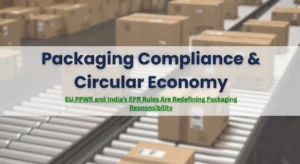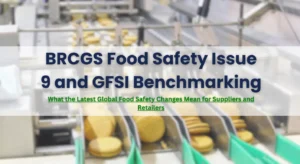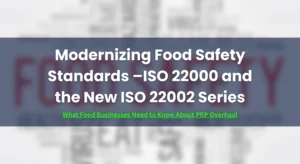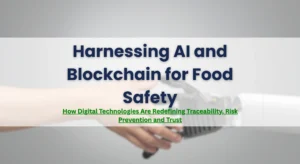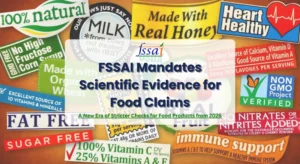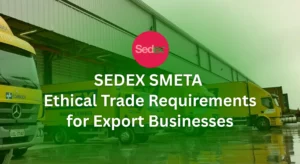In an era where transparency, safety, and sustainability drive consumer choices, compliance has become more than a legal requirement—it’s a fundamental pillar of trust, quality, and environmental responsibility. At ESPL, we recognize that staying compliant is not only about adhering to regulations but also about meeting the growing demand for sustainable practices.
What Is Compliance?
Compliance ensures that businesses meet legal, industry, and ethical standards. It encompasses various aspects, including food safety, quality management, environmental responsibility, and sustainability labeling. For industries like food processing, manufacturing, and supply chain management, compliance plays a pivotal role in safeguarding both the consumer and the planet.
Sustainability Label Requirements
Sustainability is no longer optional for businesses looking to thrive in global markets. Consumers and stakeholders now expect companies to demonstrate their commitment to environmental and ethical standards through proper labeling and certification.
Key aspects of sustainability label compliance include:
- Environmental Impact: Labels must reflect adherence to standards that reduce carbon footprints, energy use, and waste.
- Ethical Sourcing: Certifications like Fair Trade and Rainforest Alliance indicate that raw materials are sourced responsibly.
- Transparency: Accurate, verifiable information on product labels about ingredients, sourcing, and production practices.
- Circular Economy Standards: Compliance with guidelines for recyclable, compostable, or reusable packaging materials.
At ESPL, we guide organizations through the complexities of sustainability labeling requirements, ensuring that your business complies with global standards like:
- ISO 14024 for Environmental Labeling.
- EU EcoLabel for products sold in the European Union.
- USDA Organic and other organic certifications.
- GMP+ Sustainability Programs for feed and agriculture.
Why Compliance and Sustainability Matter
- Consumer Confidence: Compliance with sustainability standards builds trust and loyalty, aligning your brand with eco-conscious consumers.
- Global Market Access: Many international markets require certification and labeling standards for entry.
- Reputational Growth: Sustainability initiatives demonstrate corporate responsibility and improve your public image.
- Operational Efficiency: Sustainability practices often lead to cost savings through resource optimization and waste reduction.
Our Comprehensive Compliance Solutions
At ESPL, we simplify compliance and sustainability for your business. Our end-to-end solutions include:
- Certifications and Labeling: Support for ISO, FSSC, BRCGS, GMP+, and sustainability labels like Fair Trade, USDA Organic, and EU EcoLabel.
- Risk Assessments: Gap analysis to identify areas needing improvement for both compliance and sustainability.
- Auditing Services: Internal and external audits to ensure adherence to legal, safety, and sustainability standards.
- Training Programs: Empowering your team with the knowledge to implement sustainable and compliant practices effectively.
ESPL: Your Partner in Compliance and Sustainability
With years of experience, ESPL is at the forefront of helping businesses meet regulatory, quality, and sustainability standards. We help organizations navigate complex frameworks and achieve certifications that open doors to new markets while reducing environmental impact.
Future-Ready Compliance and Sustainability
In a world where regulations and sustainability expectations evolve constantly, ESPL is your reliable partner to stay ahead. From achieving compliance to embracing sustainable practices, we’re here to help your business thrive in a regulated, eco-conscious world.
Contact us today to learn more about our compliance and sustainability solutions, and let’s create a better future together.
Read this article to know about The Future of Sustainability in FMCG: Trends, Challenges, and Opportunities



